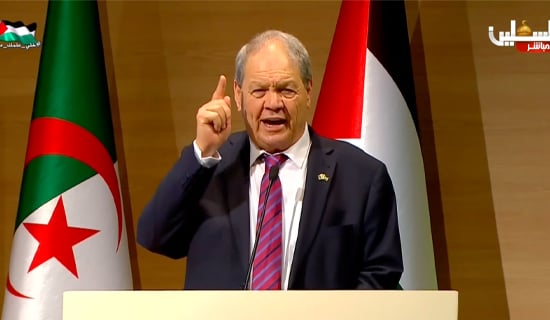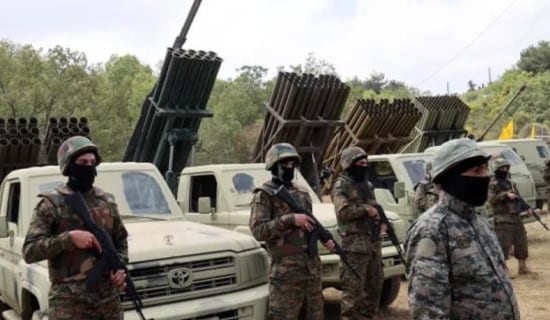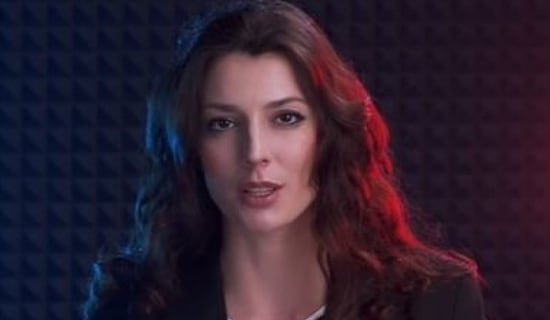Introduction
August 7, 2013 marked the end of this year's Islamic month of Ramadan, during which Muslims, with few exceptions, may not eat or drink from dawn to dusk. During this Ramadan, several North African activists, from Morocco, Algeria, and Tunisia, launched campaigns demanding the removal of all restrictions on eating in public during the month-long holiday, and calling on the central governments to respect freedom of conscience, religion and opinion.
A previous MEMRI Inquiry and Analysis, published July 30, 2013, In Tunisia And Morocco, Campaigns For Freedom From Religion During The Month Of Ramadan, reported on two such campaigns. The Tunisia campaign took the form of a backlash against a self-appointed religious leader, Adel Almi, who demanded enforcement of the religious restrictions and threatened to photograph and shame those who violate them, while in Morocco, the Masayminch/We Won't Fast movement defends the right of those who choose not to fast.
This paper focuses on Ramadan rallies in the region promoting freedom of conscience and freedom from religion. At a rally, held August 3, 2013 in the city of Tizi Ouzou, Kabylia, a region in the north of Algeria, over 500 Kabyle participated in a public lunch, held to promote "freedom of conscience."[1] Another rally, in the Kabylia coastal town of Aokas, demanded freedom from religion and that restaurants and cafes open for business in the daytime during Ramadan.
Kabylia Feels Algerian Government Is Not Committed To Respecting Individual Liberties
In Algeria, no law prohibits eating during Ramadan, but in years past some people who have not fasted have been prosecuted, and some non-Muslims have been arrested for that offense. In these cases, the judges invoked Article 144, bis 2 of Algeria's Penal Code, which states that "anyone offending the Prophet and the messengers of God or denigrating the dogmas or precepts of Islam can be punished with imprisonment." The Algerian Constitution declares in Article 2 that Islam is the state religion, but also declares in Article 36 that "freedom of creed and opinion is inviolable"; Article 29 also states that "all citizens are equal before the law" and that "no discrimination shall prevail because of birth, race, sex, opinion, or any other personal or social condition or circumstance."
However, people in Kabylia feel that in practice, the Algerian government is not committed to respecting individual liberties; since Algeria's independence in 1962, the population there has been demanding freedom of and from religion. The Kabyle people are not Arabs, but Imazighen (meaning "free people"; the singular form is amazigh, and they are better known in the West as Berbers). The Imazighen are the indigenous people of North Africa, and their presence in the region predates the eighth-century Arab invasion. Today, they are scattered across Morocco, Algeria, Libya, Tunisia, and the Sahel region.
Imazighen Subjected To Discrimination, Especially In Algeria
Although they are the region's original inhabitants, the Imazighen have been subjected to humiliation and discrimination, especially in Algeria, where the regime has systematically pursued policies of de-Imazighenization and Arabization, and have excluded Imazighen from equal access to government services and political power. Many Imazighen in Algeria consider that the central power is using Islam as another further tool to Arabize the Amazigh community, by erasing its identity, culture, language and tradition. The Imazighen, a majority of whom are Muslims,[2] traditionally practice a tolerant form of Islam.
Political Amazigh movements in Kabylia, such as the Movement for the Autonomy of Kabylia (MAK), which was among the main organizers of the rallies in Tizi Ouzou and Aokas, promote a secular state in which religion is separated from politics. The MAK, led by Bouaziz Ait Chebib, is a non-violent autonomist political organization seeking self-government for Kabylia and fighting against the Arabization of the Amazigh people. The MAK has also established an interim government of Kabylia in exile, led by Ferhat Mehenni, who resides in France.

"No to Islamist and State violence in Kabylia, MAK"[3]
Rallies In Tizi Ouzou And Aokas
The Tizi Ouzou rally, which took place August 3 at the symbolic Matoub Lounes traffic circle[4] at on the western outskirts of the city, was peaceful and nonviolent. Some of the participants held sandwiches, and others held bottles of water, and everybody aimed to emphasize their right to not fast and also to denounce the security services' harassment of non-fasters. While the rally took place in full view of several plainclothes policemen, there was no police intervention.
The Tizi Ouzou rally included speeches by several political militants, among them Movement for the Autonomy of Kabylia (MAK) president Bouaziz Ait Chebib, and Hocine Azem, senior official at the World Amazigh Congress (CMA). These two speakers reminded the crowd that "this initiative started with the aim of stopping the disregard of the values of tolerance and of the harmonious coexistence of all the opinions and faiths existing in Kabylia from time immemorial."[5] They also denounced "the persecution of those who do not want to fast, whose crime, according to them, is only failing to comply with the precepts of a religion which is increasingly falling under the control of the followers of radical obscurantism, who despise the kind of tolerant Islam which is practiced by the citizens of Kabylia."[6]
The Aokas rally, held the same day, aimed to denounce "the inquisition" and "Salafism." The protesters, some of whom were Christians from Kabylia and others who were MAK militants, held banners stating "No to Islamism, no to Salafism, no to the Inquisition" and "Punish those who stole billions, not those who do not fast."[7]
MAK President: Kabylia Is The Victim Of An "Inquisition"
MAK president Ait Chebib explained in the French weekly Le Nouvel Observateur[8] that Kabylia is a victim of a religious "inquisition" conducted by the central Algerian government. He wrote:
"For the last 10 years, police in Kabylia have been in charge of the repression of 'religious crimes'. This is unbearable for Kabylia. The Algerian state has created a climate of Islamist inquisition, to the extent that police, and lately also gendarmes have repeatedly arrested people who were eating, even though [they were eating] inside locked homes and unobserved from outside.
"Each and every Ramadan, Kabylia suffers repression, intimidation, and prosecution of people who do not fast. In 2010, at least 22 non-fasters were taken to court. They would be still in prison had the citizens of Kabylia – both fasters and non-fasters, but all outraged by this inquisition – not protested against these tribunals.
"Last year, a young man from the village of At Dwala [a town and commune in Tizi Ouzou Province, also known as Beni Douala, or Ait Douala] was severely beaten by police elements, because he had been caught eating. This year, the gendarmerie burst into a coffee shop in Tigzirt [a small town on the coast of northeast Algeria in Tizi Ouzou Province], revoked its license, and intimidated its non-fasting customers... This is too much. Kabylia cannot accept such an assault against its freedoms."
Ait Chebib also argued that despite the "inquisitional policy," Kabylia's people found the courage to hold the August 3 rally to fight for their freedom: "Despite the inquisitional policy carried out by the state, this event [i.e. the rallies in Tizi Ouzou and Aokas] provoked an immense positive reaction in the people, who considered this initiative a breath of fresh air, a burst of courage and dignity..."

Tizi Ouzou rally. Banner: "For Freedom of Conscience"[9]

Protestors drinking water at Tizi Ouzou rally.

At Tizi Ouzou rally, protestors drink water and smoke cigarettes; protestor in center holds Amazigh flag.[10]

"'We are not against the Muslim religion, nor against any other religion. We root for individual freedoms and for progress. The people of Kabylia are civilized, and we reject every form of inquisition and radicalism' – MAK president Bouaiz Ait Chebib."[11]

At Aokas rally, protestors wave Amazigh flag.[12]

At Aokas rally. Banner: "Stop the Salafis and Wahhabis.[13]
Reactions Against the Public Lunch
The rallies in Tizi Ouzou and Aokas were criticized by Algerian Minister of Religious Affairs Abu Abdellah Ghoulamallah, who called the public lunch a "ridiculous act"[14] and said that that the protestors "are themselves victims, as they were manipulated by others."[15] Algeria's High Islamic Council also criticized the rally, saying, "We strongly condemn this attitude, which is like provocation and exhibitionism."[16]
Also among the critics was Ali Belhadj, former No. 2 man in the outlawed Islamic Salvation Front (FIS) party, who went to Tizi Ouzou to protest against public lunch during the month of Ramadan. Furthermore, in a video posted on YouTube,[17] Belhadj indirectly implied that non-fasters should be killed, and accused the Algerian Minister of Religious Affairs of having done nothing to stop the rally. "Why don't the police act against these people, who harm the sensitivity of an entire people, and who violate one of the precepts of Islam[?]... he asked, and added that an "Islamic State" should not tolerate the provocations of the non-fasters and that the state should take the responsibility to "imprison or execute them".
Ait Chebib mentioned that some of the protestors also received death threats,[18] but considered the rally important in tackling "essential matters which greatly affect the future of Kabylia." He also noted that the Kabyles who participated in the rally wanted to make clear that the Amazigh identity and values promote secularism, freedom, democracy, and human rights. But more than ever, he said, the rally was also a way to assert the Kabyle people's right to self-determination. "It is the Kabyle people that will choose its own way of governance, and not a regime that will do anything to wipe out the existence of the Kabyle people, destroying one by one all the elements that make up its identity," he said.
* Anna Mahjar-Barducci is Research Fellow for North African Studies at MEMRI.
[1] Le Nouvel Observateur, August 8, 2013.
[2] Algeria’s population is fairly homogenous with respect to religion, as Sunni Muslims make up almost 99% of the population.
[3] Image source: Kabyle.com, July 31, 2013.
[4] Matoub Lounes was an Algerian Amazigh singer who was critical of the Algerian government and of its policy of Arabizing the Amazigh population. He was assassinated at a checkpoint on a mountain road near Tizi Ouzou city in June 1998. It was announced that the Algerian Armed Islamic Group (GIA) had claimed responsibility for the assassination but many of his supporters believe that the Algerian security services were ordered to kill him.
[5] Tsa-algerie.com, August 3, 2013.
[6] Tsa-algerie.com, August 3, 2013.
[7] Tsa-algerie.com, August 3, 2013.
[8] Le Nouvel Observateur, August 8, 2013.
[9] Image source; Siwel.info, August 4, 2013.
[10] The Amazigh flag is composed of horizontal blue, green, and yellow bands of the same height, and the Tifinagh letter yaz or aza. Each color of the flag corresponds to territory inhabited by Amazigh in North Africa, called Tamazgha. Blue represents the sea, that is, the Mediterranean and the Atlantic; green represents nature; and yellow represents the sands of the desert. The yaz, which is the letter in the middle of the flag, symbolizes the "free man," which is the meaning of amazigh in the Tamazight language. The yaz is colored red, to symbolize life and resistance.
[11] Image source; Siwel.info, August 4, 2013.
[12] Image source; Siwel.info, August 4, 2013.
[13] Image source; Siwel.info, August 4, 2013.
[14] Echorouk (Algeria), August 5, 2013.
[15] Algerie Press Service (Algeria), August 8, 2013.
[16] AFP, August 7, 2013.
[17] https://www.youtube.com/watch?v=Gb3ULd8Db-U, accessed August 12, 2013.
[18] Le Nouvel Observateur, August 8, 2013.








